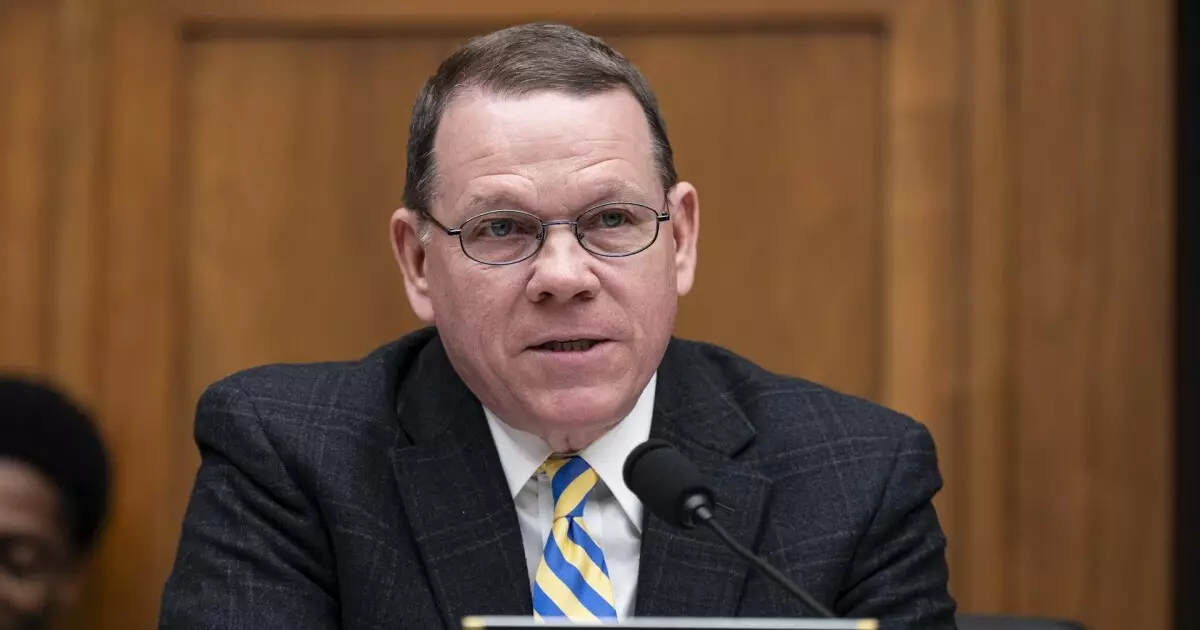As we step into a new legislative season beginning in 2025, the dialogue surrounding infrastructure spending in the United States is evolving, with a significant focus on the expansion and enhancement of roadways and rail systems. Sam Graves, the anticipated Chairman of the House Transportation and Infrastructure Committee, has articulated ambitions to accelerate infrastructural development aligned with the priorities set forth by former President Trump. This commitment reflects a deeper ideological undertone that prioritizes physical infrastructure as a foundational element of economic growth and national prosperity.
Graves’ leadership faces no minor hurdles; he has navigated challenges within his party, particularly from Rep. Rick Crawford. Such internal dynamics reveal underlying tensions and power struggles that could influence the efficacy and direction of future infrastructure policies. Despite term limitations that could have impeded his continued leadership, Graves leveraged party mechanisms to extend his tenure, underscoring the strategic maneuvering that often characterizes Congressional leadership.
Parallel to the infrastructure discussions, the conversation surrounding the Tax Cuts and Jobs Act (TCJA) remains contentious. This act, which significantly reshaped the tax landscape in 2017 under Trump’s administration, continues to evoke fervent debate among legislators. Jason Smith, the Chair of the House Ways and Means Committee, exemplifies a staunch defense of these tax cuts. His rhetoric emphasizes not only the economic implications of extending these cuts but also the political significance of maintaining a posture aligned with the desires of the majority of voters who opposed any tax increases.
Moreover, the TCJA’s implications extend beyond mere fiscal metrics; it has introduced complexities into the municipal bond market by abolishing advance refunding of tax-exempt municipal bonds and capping federal deductions for state and local taxes. Critics warn that extending the TCJA without identifying new revenue streams could exacerbate the national debt crisis, raising serious questions about sustainability and fiscal responsibility.
Inflation and Economic Recovery: The Tax Debate Intensifies
Amid ongoing discussions about the TCJA, inflation looms large, with reports indicating core inflation rates persistently above the Federal Reserve’s 2% target. This economic backdrop adds urgency to the committee’s mandate to analyze the potential ramifications should the TCJA expire. According to various analyses released by the Ways and Means Committee, a significant tax hike could loom for average American taxpayers, which could undermine the financial stability of millions and provoke backlash against the current administration’s economic policies.
Arguments against the Biden administration’s economic strategies emerge, particularly framed around taxation and fiscal policy. Smith’s framing of potential tax increases as detrimental to the middle class serves as a rallying point for Republicans seeking to solidify their narrative as defenders of lower taxation and economic growth in a tumultuous financial landscape.
As we examine the broader scope of congressional committees, transitions in leadership signal changes in the legislative focus. The House Financial Services Committee, now under the guidance of French Hill, suggests a pivot towards a more moderate yet proactive stance on emerging financial technologies, particularly regarding cryptocurrency regulations. The changing tides here reflect a growing recognition of digital assets’ significance in the modern economy and a regulatory approach that seeks to balance innovation with consumer protection.
The Senate’s shift in control, highlighted by the conclusion of Sherrod Brown’s tenure as Chair of the Committee on Banking, Housing, and Urban Affairs, marks a pivotal moment in legislative history. Senator Tim Scott is projected to take the helm, potentially steering the committee towards a more business-friendly approach. This transition is indicative of a broader Republican strategy that seeks to reshape financial policies to favor economic growth while scrutinizing previous Democrats’ protective measures for Wall Street.
As infrastructure spending and tax policy emerge as central themes in upcoming congressional sessions, the interplay between leadership dynamics, party ideologies, and economic realities will define the path forward. The dual focus on revitalizing America’s infrastructure while safeguarding against escalating taxation reflects the complexity of governance in an era characterized by economic uncertainty. Stakeholders and citizens alike must remain vigilant as these discussions unfold, anticipating how decisions made in Congress will shape the nation’s economic landscape for years to come. As debates intensify, so does the importance of constructive dialogue and strategic policymaking to navigate the crossroads of infrastructure and taxation effectively.

